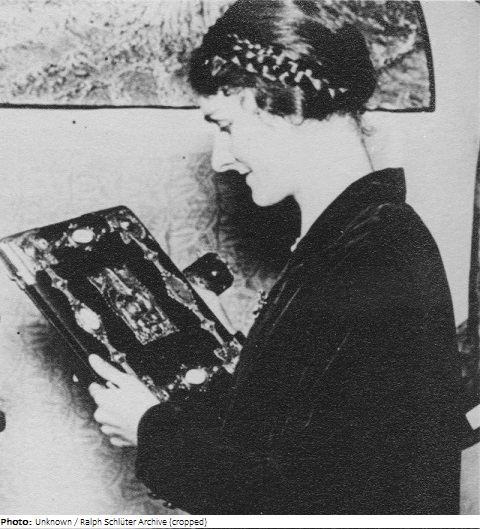Joyce Himsworth

Biographical information
| Roles | Competed in Olympic Games |
|---|---|
| Sex | Female |
| Full name | Joyce Rosemary•Himsworth |
| Used name | Joyce•Himsworth |
| Born | 19 August 1905 in Sheffield, England (GBR) |
| Died | 31 March 1989 in Sheffield, England (GBR) |
| NOC |  Great Britain Great Britain |
Biography
As a youth, British artist Joyce Himsworth worked with her silversmith father, Joseph Beeston Himsworth, making small spoons and items of jewelry. She went on to study at the Sheffield School of Art, focusing on jewelry manufacture and enameling. She also taught at art colleges in Rotherham and Chesterfield. Throughout her career, she responded to a variety of influences that were fashionable at the time. She worked mainly as a silversmith, working mostly on commission in her own studio.
Himsworth’s stylistic influences were far reaching and included Egyptian and Celtic design. A trip with her father in 1934 to the Soviet Union appeared to have had a lasting impression on her. She was also heavily involved politically, was particularly interested in Russian Communism, and was a member of the British Peace Committee.
According to the catalog, the submitted Silver Trophy was made of hand-forged silver and gold with topaz and a base of “Lignum vitae”, the wood of the Guaiacum tree, also called pockwood. Two different species of Guaiacum are the national flower of Jamaica and the national tree of the Bahamas, respectively.
Results
| Games | Discipline (Sport) / Event | NOC / Team | Pos | Medal | As | |
|---|---|---|---|---|---|---|
| 1948 Summer Olympics | Art Competitions |  GBR GBR |
Joyce Himsworth | |||
| Painting, Applied Arts, Open (Olympic) |